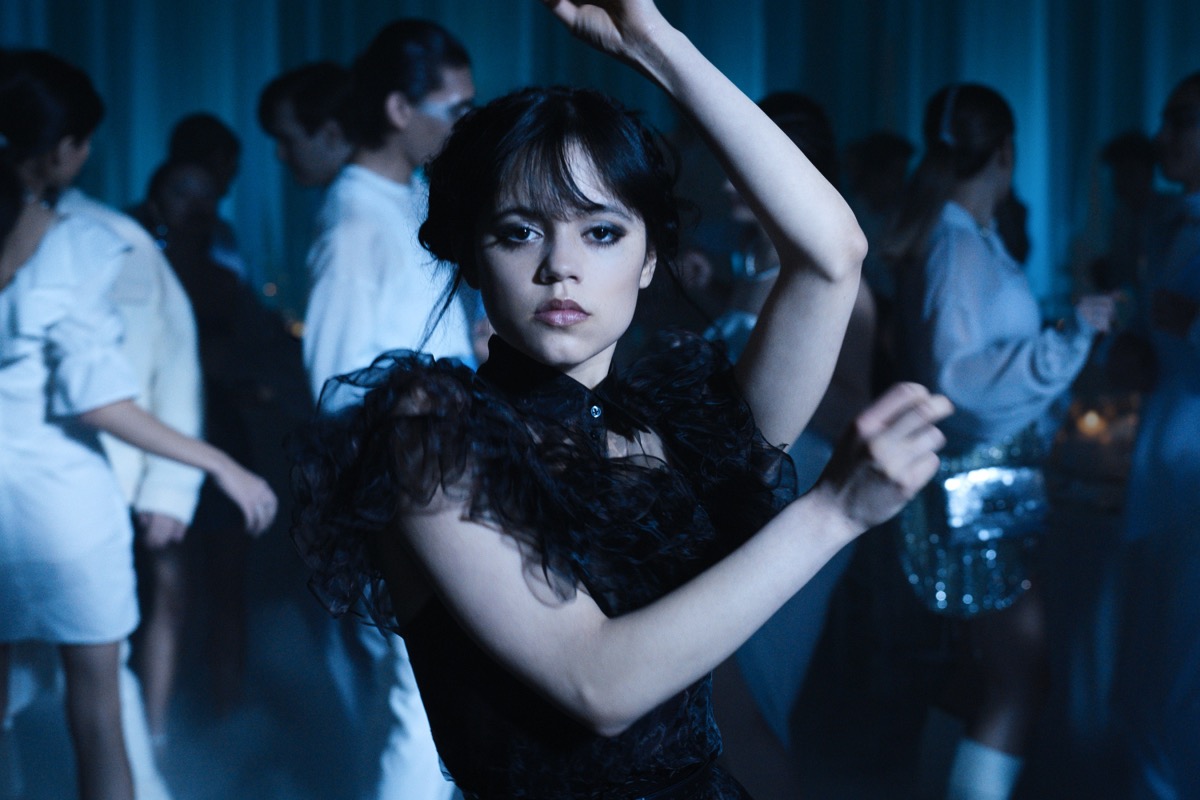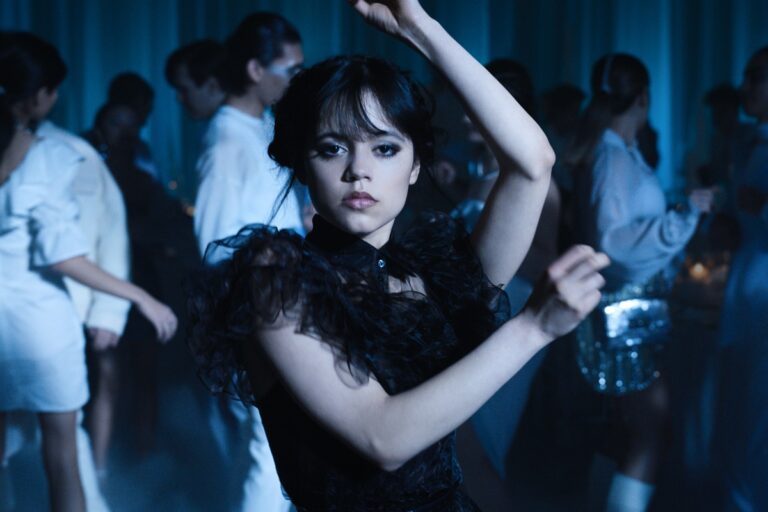
Jenna Ortega stars as Wednesday Addams in the Netflix series ‘Wednesday.’ (Courtesy of Netflix)
Premiering the day before Thanksgiving, Netflix’s Wednesday is a big hit. We’re talking bigger than Stranger Things here, making Tim Burton’s Addams-family series the record-holding English-language program on the streaming platform for its debut week.
And it’s a Latinx show!
That’s pretty significant because we’ve become accustomed to cancelations. You know, when something like HBO’s Gordita Chronicles earns strong viewership numbers, gets rave critical reviews, and meets the network’s stated goal of creating more Latinx content—and they still cancel it.
But Wednesday seems destined for a different fate.
Sure, part of it is the familiar IP. We’ve known the Addams family through the decades, from the New Yorker cartoons to the ’60s TV show and then the feature films.
And Burton, Wednesday‘s executive producer, is one of the rare filmmakers to become a household name. He certainly has fans that follow him wherever he goes, and they are particularly thrilled when he focuses on his dark and moody form, as he does here.
But Wednesday doesn’t star Johnny Depp or Winona Ryder. It’s not a peek into some white suburb. Instead, it’s Latinx—making the Addams family finally, explicitly ours.
I know we’ve long claimed the Addams family, what with their different relationship to death, the sexed-up matriarch, and the extended family household. Plus there’s the fact that the dad’s name is Gomez and, in the ’90s movies, was played by Puerto Rican actor Raúl Juliá.
So if you squint just a bit, you could say they were always Latinx, and now there’s no denying it.
In Wednesday, Mexican American and Puerto Rican actress Jenna Ortega plays the titular character. Puerto Rican actor Luis Guzmán plays her dad, Gomez, and Isaac Ordonez plays her brother Pugsley. Mother Morticia Addams is played by our friendly European, Catherine Zeta-Jones—who’s played so many “Spanish” roles, she’s practically an honorary Hispanic at this point (but not really).
So Latinx actors portray every family member except one, inverting the previous equation.
And it’s not just the casting. The show bakes Latinidad into the production with Wednesday and her family speaking Spanglish, referencing the Day of the Dead, and calling Mexico their ancestral home.
Add the fact that the show doubles down on critiquing the Anglo myths of U.S. history, and you’ve got a bonafide Latinx production (veiled spoilers ahead).
Where Christina Ricci’s Wednesday rewrote the Thanksgiving script, Jenna Ortega’s fights a genocidal pilgrim in the season one finale. Ortega’s Wednesday is aligned by blood and history to the Native population whose land she is on. And, indeed, this Wednesday needs her ancestors and her present cross-racial alliance to stop the forces that would repeat the ethnic cleansing of our nation’s founding.
So how did a show starring Latinx characters and critiquing settler colonialism as its central conflict become such a big hit? Part of the answer is Wednesday’s popular elements: its beautiful Tim Burton aesthetics, its use of beloved teen tropes.
But the other part is that we, the viewing public, are hungry for shows that reflect our modern sensibilities. This Thanksgiving, that meant lifting up accurate Indigenous histories and re-imagined ones. It meant re-telling the story of the U.S. in a way that didn’t put forth an idea of white innocence and vanishing Native communities. It meant centering non-white perspectives and having fun while doing it.
I hope Hollywood takes note.
***
A writer and activist, Cristina Escobar is the co-founder of latinamedia.co, uplifting Latina and gender non-conforming Latinx perspectives in media. She’s a member of the Latino Entertainment Journalists Association and writes at the intersection of race, gender, and pop culture. Twitter: @cescobarandrade



